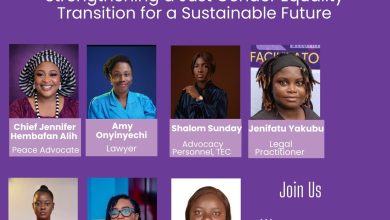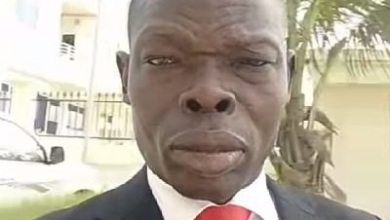5 Takeaways on Ending FGM from NFM Stakeholder Gathering

|
Getting your Trinity Audio player ready...
|
On February 14, 2025, Naija Feminists Media (NFM) hosted an X (formerly Twitter) Space titled “Beyond Policy: Eliminating the Rearing Ahead of Female Genital Mutilation” to mark the International Day of Zero Tolerance for FGM.
Experts gathered to discuss the persistent practice of Female Genital Mutilation (FGM) in Nigeria, its cultural and legal challenges, and the need for stronger enforcement and media attention. The discussion explored the cultural and policy dimensions of FGM and strategies for its eradication.
Key Lessons from the X Space
1. Weak Legal Enforcement Perpetuates FGM
Legal practitioner Joy Njeb highlighted that Nigeria’s Prevention of Violence Against Women Act criminalises FGM, imposing a maximum penalty of four years in prison or a ₦200,000 fine. However, enforcement remains a major challenge. Many victims undergo FGM as minors, making legal action difficult since they cannot testify or seek justice independently. Additionally, the penalties are not severe enough to deter perpetrators, allowing the practice to persist in various communities.
2. Cultural and Economic Factors Sustain FGM
Gender advocate Gladys Emmanuel emphasised that FGM is deeply embedded in cultural traditions. Some communities believe it ensures a girl’s purity and those who refuse to undergo the procedure face social ostracisation. Beyond cultural beliefs, economic factors also play a role, as some women rely on performing FGM as a source of livelihood. Gladys also pointed out that even educated Nigerians in the diaspora bring their daughters back home to undergo FGM, showing the extent of cultural influence and the need for global advocacy.
3. Survivors Face Lifelong Physical and Mental Health Challenges
FGM survivors often experience severe health complications, as shared by Ololade Ajayi, an FGM survivor and also the founder of DOHS Cares Foundation. She recounted her personal struggles, including difficult childbirth, where she could not dilate beyond 2 cm and had to undergo a C-section. Many survivors also suffer from sexual dysfunction, finding it difficult to climax during sexual intercourse. These experiences highlight the long-term psychological and physical trauma caused by FGM, showing why urgent action is needed to protect future generations.
4. Media Plays a Critical Role in FGM Eradication
Kosisochukwu Ani, a gender advocate, stressed that the media must do more than just report FGM statistics. She urged media outlets to amplify survivors’ voices and educate communities through storytelling. She encouraged journalists and media houses to prioritise FGM coverage, share real-life survivor experiences, and push for whistleblower mechanisms that expose perpetrators. Also, raising awareness through traditional and social media platforms can challenge the normalisation of FGM and push for stronger action against it.
5. Collaboration is Key to Ending FGM
The speakers unanimously agreed that ending FGM requires a multi-dimensional approach. Yemi Balogun called on journalists to produce investigative stories and work closely with NGOs to shed light on hidden cases of FGM. Ololade Ajayi emphasised the psychological trauma survivors endure, while Joy Njeb reiterated the need for tighter legal protections. Additionally, Simbiat Bakare encouraged stakeholders to learn from history, recognising that past efforts to end other harmful cultural practices could serve as a model for fighting FGM today.
The X Space discussion showed that ending FGM requires more than policy changes. It requires stronger enforcement, cultural transformation, survivor-centered advocacy, media engagement, and cross-sector collaboration. Only by addressing these aspects together can meaningful progress be made in eradicating FGM in Nigeria and beyond.






